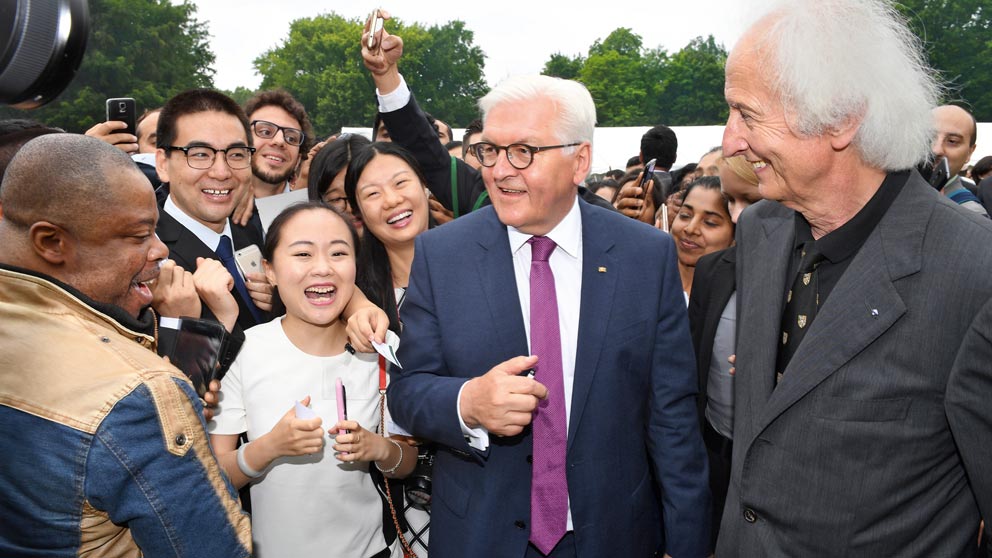Jump to the content
- {{#headlines}}
- {{title}} {{/headlines}}

Steinmeier emphasised the role of science in contemporary public debate: on the one hand, the need for knowledge was growing, at the same time, “rejecting knowledge and reason, badmouthing expert advice” were becoming “ever louder and crasser”. One should “not allow the willingness to compromise, to listen and to discuss dispassionately to get lost,” Steinmeier continued. He encouraged Humboldtians as well as the entire German science landscape to enter more into conversation with the public: “When the social climate becomes stifling, that’s when we need a breath of fresh air from the universities.”
The President of the Humboldt Foundation Helmut Schwarz also encouraged Humboldtians to take every opportunity to speak out publicly about what scientists do and thus counter anti-science tendencies. “It should go without saying that in a complex, globally-connected world we do not only need sound, expert analysis, but critical thinking and independence as well,” said Schwarz in his opening address at TU Berlin. “The better the freedom of science as well as the freedom of opinion and the press are protected, the better are the conditions under which science can thrive.”
In the course of the meeting, Federal President Steinmeier bestowed the Philipp Franz von Siebold Award for special services to German-Japanese exchange on the Japanese philosopher Hiroshi Abe. The Humboldt Alumni Award was presented to the Humboldtians Arkin Olğar, Turkey, Matthias Fritsch, Canada, Sergei Levchenko, Belarus, Aderemi Raji-Oyelade, Nigeria, and Athina Sioupi, Greece, for their initiatives to promote academic and cultural ties between Germany and their own countries.
